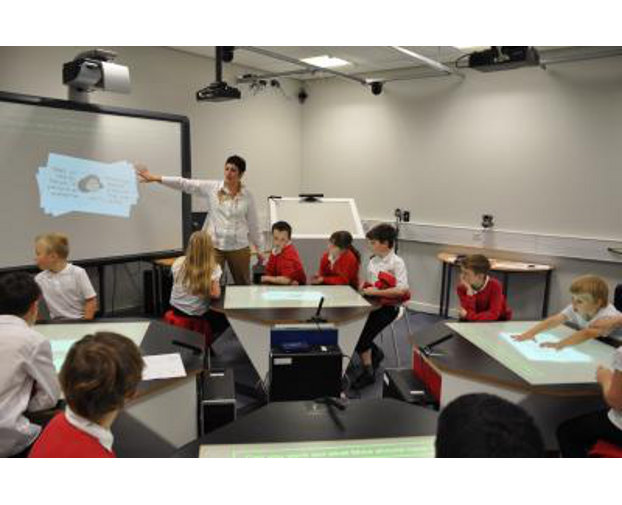
No matter where you go in the world, the majority of students will always say that math is one of the most difficult subjects to master. Although numerous methods have been introduced over the years to help students develop mathematical fluency including designing activities and continual practice, none of them have proven to be as effective as hoped.
In an effort to buck the trend, Durham University in United Kingdom has what they believe is a solution for this problem, as the institution for higher education has developed high-tech desks that will help students get a grasp on math. These high-tech desks are called NumberNet desks and they are part of an innovative multi-touch classroom.
The university has developed and tested NumberNet desks by following a three year project that has produced positive results. These NumberNet desks are designed in a way that allows them to respond to touch based commands from numerous students simultaneously. As the system installed in it can detect infrared light, which enables groups of students in a classroom to work together, so they will be able to enhance their mathematical skills through collaboration.
Additional benefit of NumberNet desks is that teachers can receive live data from all the desks and can also collect and send sets of questions to the desks. Moreover, these classrooms also have a main smart-board through which teachers can pull up incomplete work to finish it together. Impressive.
The Leading researcher for this project, Professor Liz Burd had the following to share about the teaching tool, “Our aim was to encourage far higher levels of active student engagement, where knowledge is obtained by sharing, problem-solving and creating, rather than by passive listening. This classroom enables both active engagement and equal access. We found our tables encouraged students to collaborate more effectively.”
The video analysis of NumberNet desks proves Liz Burd’s statement true, as collaborative study and learning from the expressions of other groups have boosted fluency and flexibility of students in resolving mathematical problems. These results were obtained after studying 86 students, of which 45 percent of the group using these high tech desks solved more unique mathematical problems than the ones doing the same activity on paper.
Source: PSFK
Photo: DiscoveryNews